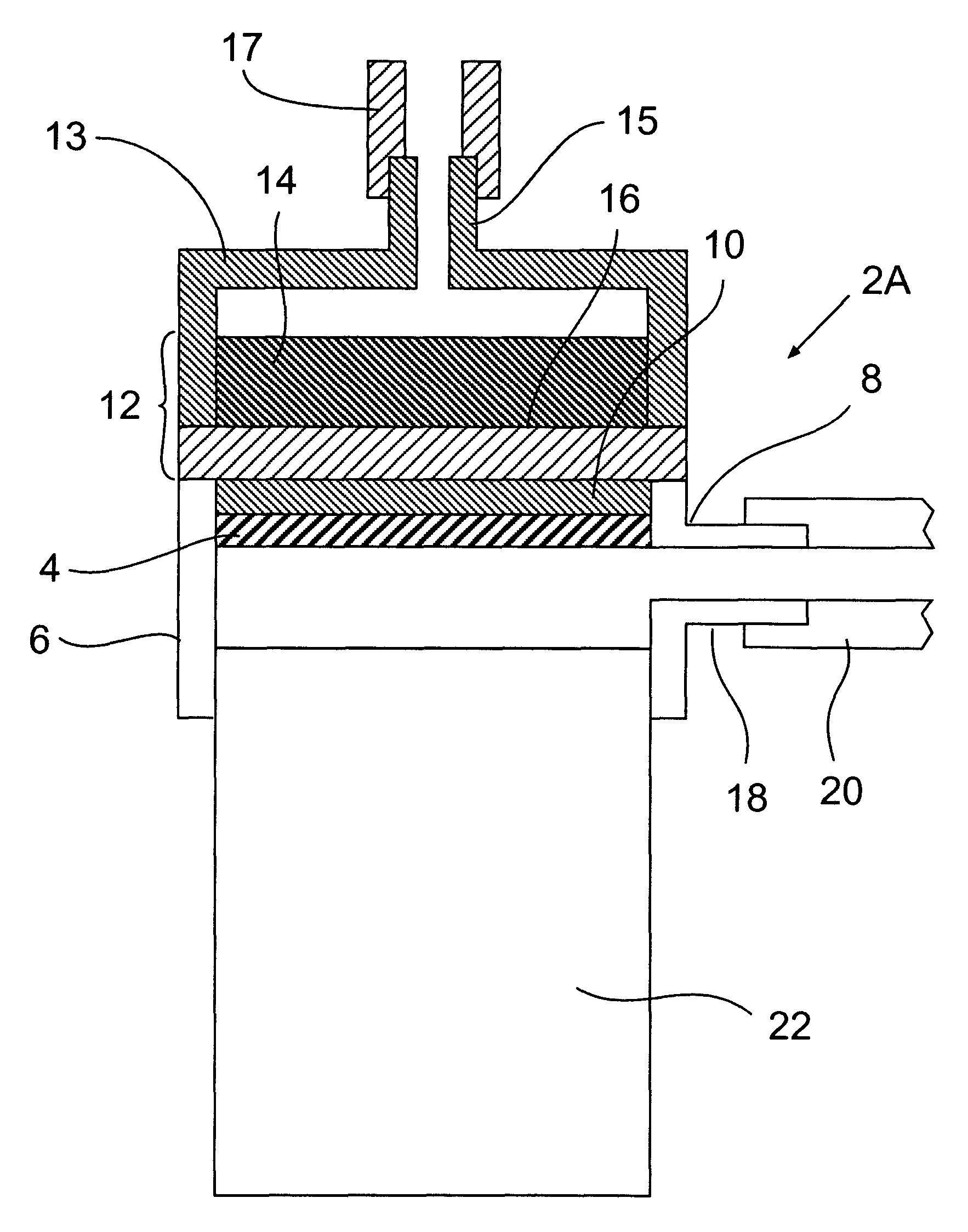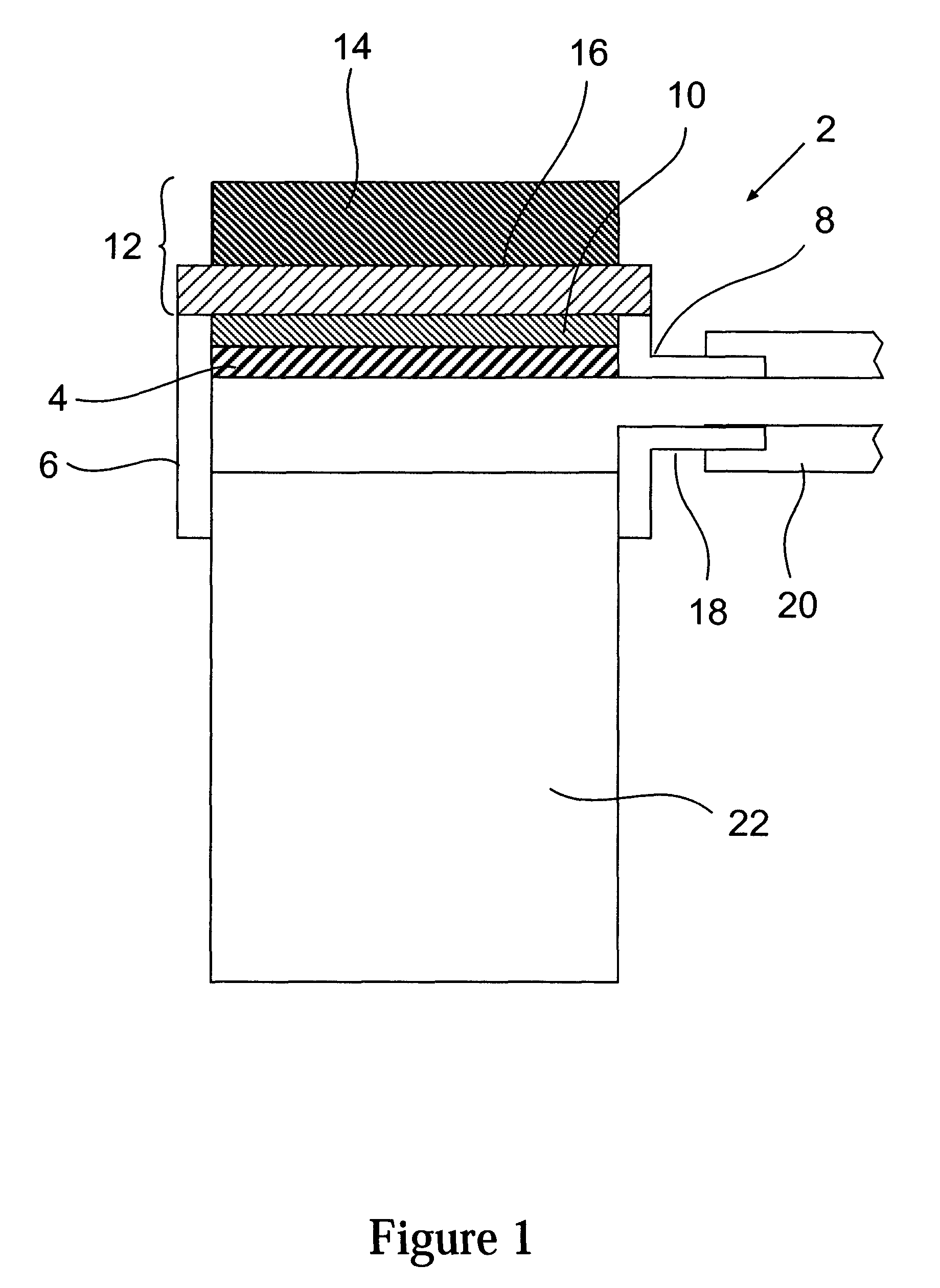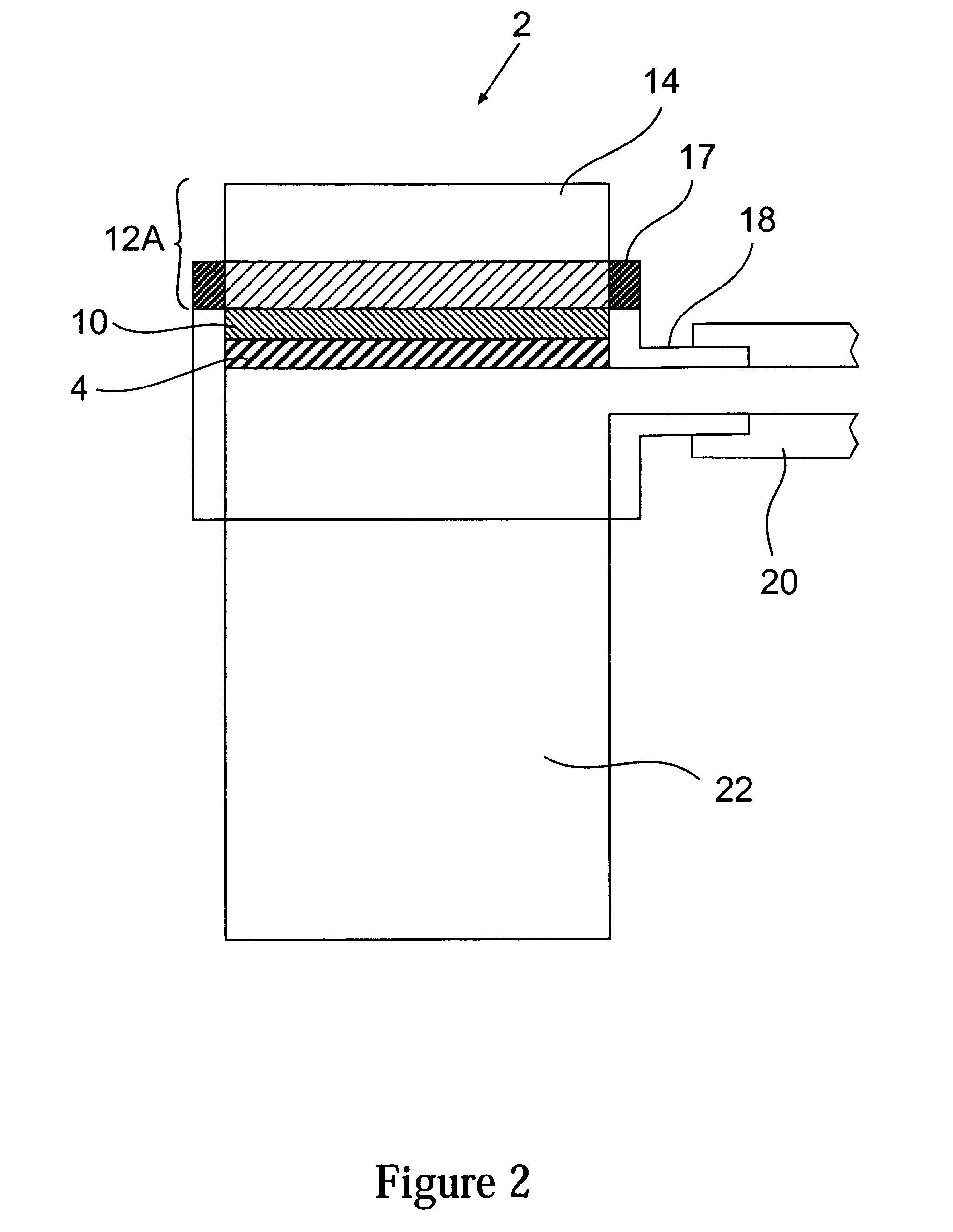Immunoassay product and process
a technology of immunoassay and product, applied in the field of immunoassay product and process, can solve the problems of large volume of reagents, high noise and low detection level, and long process, and achieve the effect of rapid, efficient and convenient method of detection
- Summary
- Abstract
- Description
- Claims
- Application Information
AI Technical Summary
Benefits of technology
Problems solved by technology
Method used
Image
Examples
example
[0075]The device of FIG. 1 was made using the base of a STERICUP® device (available from Millipore Corporation of Billerica, Mass.) as the vacuum manifold, a piece of Porex® porous plastic as the porous support, a Durapore® hydrophilic membrane (GVPP), 0.22 micron pore size as the flow distributor and a polystryrene strip (typically 4 mm larger than the membrane size. For example, 76 mm (L)×86 mm (W)×25 mm (H) for 72 mm×82 mm) well formed by bending the strip at 90° to form four corners and sealing the ends of the strip to each other using (3211 light cure adhesive, available from Loctite). The well was glued to the membrane surface using the Loctite 3211 light cure adhesive.
[0076]The base was connected to a valved vacuum line via its vacuum port.
[0077]A prewet (prewet in 100% methanol, then in water) blotting membrane (IMMOBILION™ Western blotting membrane available from Millipore Corporation of Billerica, Mass.) containing a sample of bovine liver lysate was placed on the base and...
PUM
| Property | Measurement | Unit |
|---|---|---|
| sizes | aaaaa | aaaaa |
| sizes | aaaaa | aaaaa |
| sizes | aaaaa | aaaaa |
Abstract
Description
Claims
Application Information
 Login to View More
Login to View More - R&D
- Intellectual Property
- Life Sciences
- Materials
- Tech Scout
- Unparalleled Data Quality
- Higher Quality Content
- 60% Fewer Hallucinations
Browse by: Latest US Patents, China's latest patents, Technical Efficacy Thesaurus, Application Domain, Technology Topic, Popular Technical Reports.
© 2025 PatSnap. All rights reserved.Legal|Privacy policy|Modern Slavery Act Transparency Statement|Sitemap|About US| Contact US: help@patsnap.com



